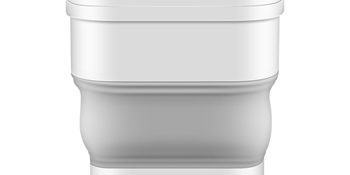As global awareness of environmental issues grows, sustainable waste management solutions are gaining prominence. One such innovation that has captured attention is the sensor bin – a smart and efficient tool that aligns with the principles of waste reduction and proper disposal. This article delves into the role of sensor bins in promoting sustainability and enhancing waste management practices.
A Step Towards Sustainability:
- Reducing Contamination: Sensor bins, with their touchless operation, help reduce contamination by minimizing direct contact with waste materials. This contributes to cleaner waste streams and facilitates recycling efforts.
- Encouraging Proper Disposal: The convenience of sensor bins encourages people to use them properly, reducing littering and promoting responsible waste disposal behaviors.
- Data-Driven Insights: Some sensor bins are equipped with technology that collects data on usage patterns. This information can inform waste management strategies and optimize collection routes, reducing fuel consumption and emissions.
Smart Features for Efficient Management:
- Capacity Monitoring: Sensor bins can alert waste management personnel when they are nearing full capacity. This proactive approach ensures timely waste collection and prevents overflow.
- Energy Efficiency: Many sensor bins are designed with energy-saving features, such as low-power sensors and intelligent lid-closing mechanisms. This minimizes energy consumption and extends battery life.
- Remote Management: Smart sensor bins can be remotely monitored and controlled, allowing for efficient management across multiple locations without the need for constant physical presence.
Versatility in Implementation:
- Residential Use: Sensor bins can be incorporated into households, encouraging sustainable waste disposal practices and making recycling more convenient for families.
- Commercial Spaces: In commercial settings, sensor bins promote a clean and professional environment. Their hands-free operation is particularly valuable in spaces with high foot traffic.
- Outdoor Applications: Sensor bins can be placed in public parks, streets, and recreational areas, reducing litter and enhancing the overall cleanliness of the community.
The Road Ahead: The continuous evolution of sensor technology holds promise for further improvements in waste management. As sensor bins become more intelligent and adaptable, they could play a pivotal role in creating a circular economy where waste is minimized, resources are conserved, and environmental impact is reduced.
In conclusion, sensor bins are at the forefront of sustainable waste management, offering a smart solution that aligns with environmental goals. Their role in minimizing contamination, promoting responsible disposal, and optimizing waste collection reflects their potential to reshape waste management practices for a greener future.







